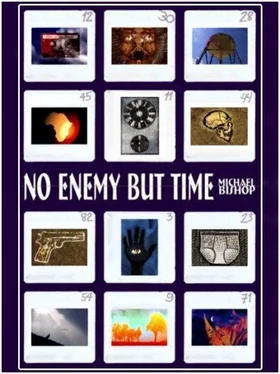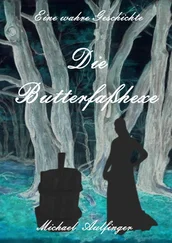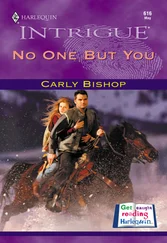What now? Roosevelt’s beetle-browed expression appeared to inquire.
From the thigh pocket of my bush shorts I removed my last unwrapped package of Fruit of the Loom cotton briefs and nimbly extracted them from the plastic. Like a matador displaying his cape, I shook them out. They were clean and bright, so seductive that a week ago I had almost broken down and changed into them as a means of combating my can’t-get-started-with-you-habiline blues. Now I was glad I had not. The briefs had a waistband of resilient elastic completely encircled by a single golden thread. I posed behind them so that Roosevelt could see how they were supposed to be worn.
Roosevelt’s mamma had not raised a blockhead. He quickly made the necessary notional leap and snatched the briefs away. Then he retreated to the southern end of the kopje’s overhang to fondle and examine them. Warily eying me as I gestured encouragement, he stood on one foot long enough to insert the other through the garment’s leg opening, then hurriedly switched feet and completed the job, shinnying the briefs up his lean thighs and over the hairy knot of his genitalia. Voilà! A habiline in immaculate Fruit of the Looms.
I was misty-eyed. “Jesus, Roosevelt,” I told him; “Jesus, you really look nice .”
Still leery, he swaggered back toward me and retrieved the gutted hare. This, without ceremony, he gave into my hands, apparently in exchange for the underwear. Before I could assure him that there were no strings attached to my gift—beyond the heretofore badly frayed hope that it might establish my trustworthiness as an ally—Roosevelt had darted off across the darkening savannah in the direction of New Helensburgh.
I hunkered in the shelter of the kopje to eat the remains of the hare, pleased with myself for not having pointed out to Roosevelt that he had donned my resplendent briefs backwards.
* * *
It had not rained since my arrival in the Pleistocene. Obviously it had been dry for quite some time.
Recently, however, this lack of rain had provoked the migration of many herd animals—gazelles, wildebeest, zebras, and several species of protoantelope—out of the area. Although the food-gathering techniques of the Minid females probably accounted for two thirds of what the band actually ate, the absence of meat on the hoof would eventually work real hardships on Helen’s people, primarily by depriving them of a vital supply of protein. Mongongo nuts were rare in this part of Africa; and if the smaller game animals—guinea fowl, hares, warthogs, monkeys, hyraxes, and water birds—followed the example of the ungulates, why, the Minids would soon be facing the ghastly specter of Famine.
And so would I.
The prospect excited as well as disturbed me. A change for the worse in hunting conditions might prove my best opportunity since the Great Fruit of the Loom Giveaway of winning friends and influencing habilines.
After giving Roosevelt the briefs, I detected among all the hunters a heightened willingness to tolerate me on their trail, as if I embodied a queer sort of sartorial example and maybe even a source of further handouts. It perplexed me that Roosevelt did not wear the briefs—I could not help wondering what he had done with them—and that these hunts usually went badly, but at least I had been granted the right to spectate. A genuine concession. Helen, across a hundred or more yards of savannah, would sometimes turn and fix me with a stare, neither hostile nor admonitory, that would make me tremble in my chukkas. I do not know exactly why I trembled, but the impetus might have been simple gratitude. A pariah often interprets the bone flung into his face as nourishment rather than rebuke.
But, as I said, these latest hunts seldom concluded successfully. Even though I tried to keep a low profile, my presence on the veldt handicapped the Minids. Nevertheless, the most compelling factor in their slow undoing was the drought. After the zebras, Tommies, wildebeest, et al., withdrew in populations numbering in the several thousands, an exodus of lions, leopards, cheetahs, and mangy canids ensued. Soon the Minids and I were sharing our homeland with game too big to dispatch easily (giraffids, quasi-elephants, hippos) and territorial competitors like the hyenas and those awesome baboons called Simopithecus jonathani that reminded me of agile gorillas. Only a few robust australopithecines remained in the area, sad-sack shamblers who provoked in me—on our increasingly rare encounters—a disquieting blend of pity and guilt. They were vegetarians, who, I knew, sometimes fell victim to the omnivorous cunning of their cousins. Most of them had probably deserted the gallery forest not so much because of the drought as because of the habilines’ merciless depredations.
Helen’s people, I might reiterate, were not the only protohumans in the area. At least three other bands of comparable size roamed the mosaic of habitats bordering Lake Kiboko on the east. I had heard them singing in the mornings; and on three or four occasions, taking particular care not to reveal myself, I had actually seen the hunters of one of these bands—the Lakeys, I called them—conferring on the plain with Alfie or other representatives of the Minids.
Indeed, a few days later the Lakeys and the Minids had engaged in a seemingly spontaneous fiesta in a river strip of fig trees about halfway between Lake Kiboko and New Helensburgh. Such get-togethers, I understood, provided an essential social outlet for the habilines. A randy young male might well find a nubile femme fatale among the unattached ingénues of the other band. Depending on circumstances, he would either return with her to his own people or remain with his bride as an adoptive son of his in-laws.
As yet, however, I had witnessed no marriages and could not predict which of these two likely patterns would prevail. Mister Pibb was the only Minid even remotely close to marrying age, but he had not asserted himself during the shindy with the Lakeys, so nothing but chatter and good-natured wrestling had come of that meeting.
In addition to the Lakeys and the Minids, I had evidence—in the form of haunting morning songs and an occasional distant sighting of strange bipeds—that two other bands of habilines lived relatively near. One of these had colonized a wooded flank of Mount Tharaka to the southeast, while the other had established an amorphous principality somewhere in the opposite direction (a region today given over to Zarakal’s chronic border disputes with Ethiopia and Somalia). The tacit understanding among all these bands was that they fared better as maverick units than as partners in even a semiformal alliance. The availability of edible plants and the disposition of game across the plains did not permit the mounting of a grandiose habiline republic, especially in seasons of drought.
United (beyond a certain ecologically determined limit) you fell. Divided (into autonomous bands of fewer than thirty) you stood. For which reason Alfie the Minid did not aspire to be Alexander the Great.
During this fallow period, the Minids compounded their problems by missing several kills and allowing a pair of aggressive lionesses to drive them off another. It struck me that I could improve my status by demonstrating my talents as a breadwinner. I would make my reluctant cousins a present of an animal large enough to keep them well fed and sassy for two or three days. To that end, I went out one morning before dawn, before the ritualistic choiring of habilines, and walked in the cool half-dark all the way to the edge of Lake Kiboko. By the time I arrived the sun was rising, marbling the eastern horizon with delicate rose and salmon. The lake itself was a vast looking glass of turquoise.
Читать дальше



![Ally Carter - [Gallagher Girls 01] I'd Tell You I Love You But Then I'd Have to Kill You](/books/262179/ally-carter-gallagher-girls-01-i-d-tell-you-i-lo-thumb.webp)








